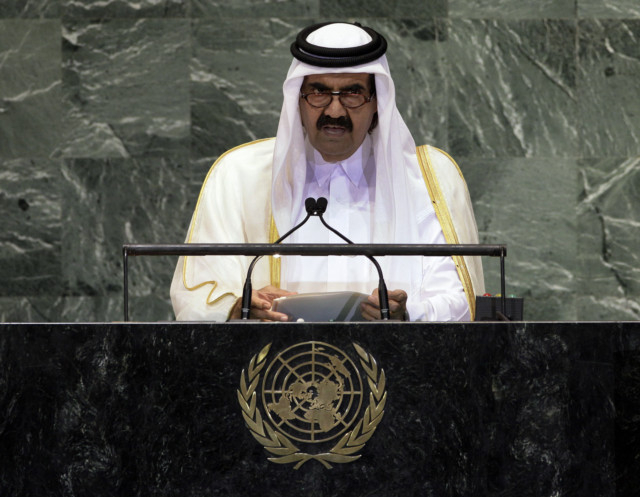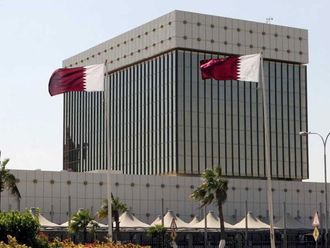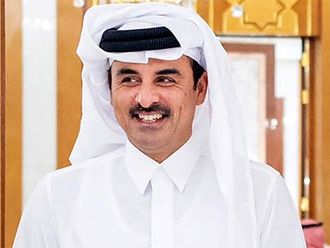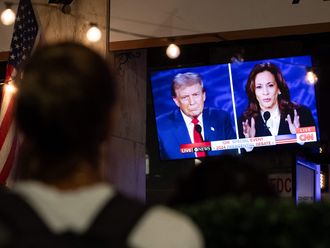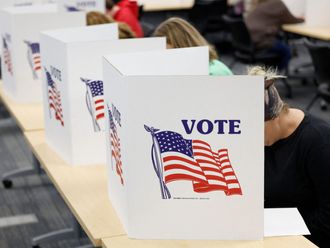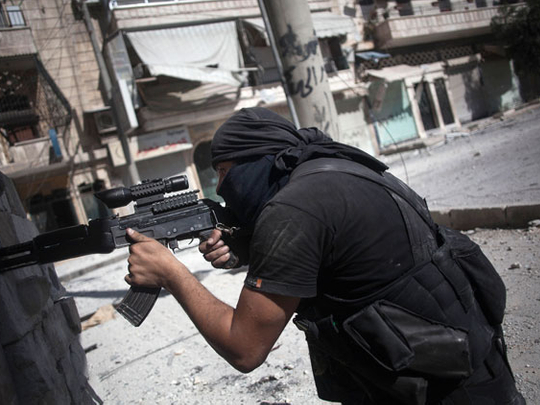
Bahrain: Qatar’s emir called for an Arab-led intervention in Syria, hinting at the use of military means to stop a conflict that has dragged on for 18 months.
After the United Nations Security Council’s failure to act in Syria, “it is better for the Arab countries themselves to interfere out of their national, humanitarian, political and military duties and to do what is necessary to stop the bloodshed in Syria,” Shaikh Hamad Bin Khalifa Al Thani told the 193-member General Assembly Wednesday.
Qatar has led the group of Gulf nations seeking more far-reaching measures to end Syrian President Bashar Al Assad’s rule, even going as far as arming the opposition, a step widely criticised by the UN and Western nations.
Al Thani Wednesday suggested Arab nations should act in unison and intervene in Syria as they did in the 15-year civil war in Lebanon.
“We have a similar precedent when the Arab forces intervened in Lebanon,” in the 1970s, he said. The extent of potential military intervention was left unclear.
“It’s easy to say tough things at the UN, but will they actually send in military? Nope,” said Richard Gowan, associate director for crisis diplomacy and peace operations at New York University’s Centre on International Cooperation.
“Qatari officials have always been among the most hawkish on Syria, but Qatar can hardly lead a large-scale intervention,” Gowan said in an email. “This statement was probably meant to prod others, like Turkey, towards mounting an operation.”
France has been in talks with Qatar, Jordan and Turkey about establishing protected civilian zones in Syria, French President Francois Hollande said at a press conference in New York after his General Assembly address on Tuesday.
“We must protect these zones,” he said, while sidestepping questions seeking more details about how that would be done. “We are not there yet, but we are working with our partners,” he said.
Earlier, at the UN, he said France “will recognise a provisional government, representative of the new free Syria, as soon as it is formed. It will demand full guarantees each community be respected and live in security in the Syria of the future.”
A US State Department official said the Qataris have pushed the idea of a military intervention for some time. While the US hasn’t eliminated any course of action, for now it believes that military intervention from the outside would do more harm than good, the official said.
The official, who wasn’t authorised to speak for attribution because the talks are private, said that the US and Lakhdar Brahimi, the UN and Arab League special envoy, believe diplomacy can be used to bring about a negotiated political transition in Syria. The official said that during Brahimi’s talks with US Secretary of State Hillary Clinton on Tuesday, Brahimi made it clear he believes this will take time.
The US and Brahimi are mindful that negotiations might ultimately fail, the official said. Until that point is reached, the US will continue to back a strategy of applying economic and political pressure on the Al Assad regime and helping the Syrian opposition with supplies and in its attempts to become a more unified force.
A meeting of the so-called Friends of Syria, set to take place on September 28 on the margins of the UN General Assembly, will examine ways to connect opposition groups inside and outside Syria and foster unity among them, the official said. Clinton will also announce changes in US aid to the opposition, the official said.
Clinton also met with Lebanese Prime Minister Najib Mikati on Tuesday. The two spent most of their meeting talking about the potential risks and threats to Lebanon’s stability posed by the conflict in Syria, including refugee flows, the State Department official said,
Mikati highlighted his concerns about extremists entering Lebanon and using the northern part of the country as a platform for their activities, the official said.


